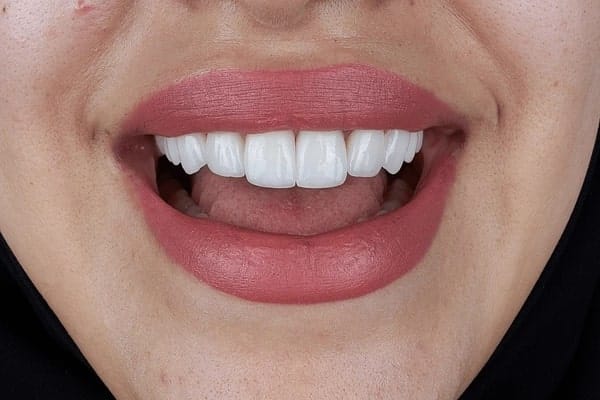What Are the Benefits of Flossing for Families?
Flossing is an essential part of maintaining excellent oral hygiene, yet it is often overlooked. While brushing removes plaque and food debris from the surface of the teeth, flossing is the only way to effectively clean between them.
Key Benefits of Flossing:
- Removes plaque: Plaque build-up between teeth can lead to cavities and gum disease. Flossing reaches these tight spaces, ensuring thorough cleaning.
- Prevents gum disease: Regular flossing helps reduce the risk of gingivitis and periodontitis by removing bacteria below the gumline.
- Improves breath: Bacteria trapped between teeth can cause bad breath. Flossing eliminates these odour-causing bacteria.
- Protects against cavities: Cleaning between teeth prevents decay in areas that brushing cannot reach.
- Supports overall health: Research suggests poor oral hygiene can be linked to systemic diseases like heart disease and diabetes.
- Encourages lifelong habits: Teaching children to floss early establishes a foundation for lifelong oral health.
Why Is Flossing Important for Kids and Seniors?
Children and older adults require special attention when it comes to flossing.
- Children: Kids are more prone to cavities due to sugary diets and inconsistent oral hygiene routines. Flossing helps remove food particles from tight spaces and teaches them good oral care habits.
- Seniors: As we age, gum recession and medical conditions like arthritis make flossing difficult. Using floss picks or electric flossers can help maintain oral hygiene despite mobility issues.
How Does Flossing Compare to Brushing?
Many people believe brushing alone is enough, but flossing provides additional benefits. The table below compares the two:
| Feature | Brushing | Flossing |
| Removes plaque | Yes, from tooth surfaces | Yes, from between teeth |
| Prevents cavities | Yes, but limited to accessible areas | Yes, especially in tight spaces |
| Reduces bad breath | Yes | Yes, especially for trapped food debris |
| Prevents gum disease | Helps, but not as effectively | Essential for gum health |
| Recommended frequency | Twice a day | Once a day |
What Are the Most Common Flossing Mistakes?
Despite its importance, many people floss incorrectly. Here are some common mistakes:
- Skipping flossing due to inconvenience – Many avoid flossing because it takes extra time.
- Not using enough floss – A short piece of floss can spread bacteria between teeth rather than remove it.
- Snapping the floss into gums – Harsh flossing can damage gums and cause bleeding.
- Neglecting back teeth and molars – These areas are often forgotten but require flossing just as much as front teeth.
- Using the same section of floss for all teeth – Reusing the same area of floss transfers bacteria rather than removing it.
How Can Parents Encourage Children to Floss?
Teaching children to floss early ensures good oral hygiene habits. Here are some ways parents can make flossing fun and engaging:
- Use flavoured floss: Children are more likely to floss if they enjoy the taste.
- Turn it into a game: Create a flossing chart and reward consistency with stickers or small incentives.
- Lead by example: Children mimic their parents, so flossing together encourages them to follow suit.
- Use child-friendly floss picks: Floss picks with fun designs make flossing easier for young children.
- Educate on the benefits: Show them pictures of healthy vs unhealthy gums to highlight the importance of flossing.
How Does Flossing Prevent Gum Disease?
Gum disease begins with plaque build-up along the gumline. When plaque isn’t removed, it hardens into tartar, leading to gingivitis—the early stage of gum disease. Symptoms include:
- Red, swollen gums
- Bleeding during brushing or flossing
- Persistent bad breath
Flossing daily removes plaque before it turns into tartar, reducing the risk of more severe conditions like periodontitis. Studies suggest that gum disease is linked to increased risks of cardiovascular disease and diabetes, further emphasising the importance of flossing.
How Can You Make Flossing More Effective?
For optimal results, flossing should be done correctly:
- Use about 45 cm of floss: Wrap most of it around your middle fingers, leaving a few inches to work with.
- Slide the floss gently between teeth: Avoid snapping it into the gums.
- Curve the floss into a C-shape: Wrap it around each tooth to clean below the gumline.
- Use a clean section for each tooth: This prevents spreading bacteria.
- Floss daily: Make it a part of your oral hygiene routine.
Why Is Flossing Essential for Families in Palm Beach?
Palm Beach families enjoy an active outdoor lifestyle, but oral health should not be neglected. Consuming foods high in sugar, frequent snacking, and busy schedules often result in overlooked oral care routines. By prioritising flossing, families can:
- Prevent costly dental treatments
- Maintain bright, healthy smiles
- Reduce the risk of oral infections
Where Can Families Get Professional Advice on Flossing?
At Palm Beach Dental, we are committed to helping families achieve excellent oral health. Our experienced team provides tailored dental care, educating patients on proper flossing techniques and overall oral hygiene. Whether you’re looking for preventive care, professional cleanings, or advice on flossing for children, our clinic is here to support you. Book an appointment today to ensure your family’s dental health remains a priority.
FAQs on Flossing
1. How often should I floss?
Flossing should be done at least once a day to remove plaque and food debris from between teeth.
2. Is flossing necessary if I use an electric toothbrush?
Yes. While electric toothbrushes clean effectively, they cannot reach between teeth as floss does.
3. What type of floss is best?
The best floss depends on personal preference. Waxed floss slides easily, while unwaxed floss is thinner. Floss picks and water flossers are great alternatives.
4. Can flossing too hard damage my gums?
Yes. Snapping floss into your gums can cause bleeding and irritation. Be gentle and use a C-shaped motion around each tooth.
5. At what age should children start flossing?
Children should start flossing as soon as they have two teeth that touch. Parents should assist them until they develop proper technique.
6. Can flossing help with bad breath?
Yes. Bad breath is often caused by bacteria trapped between teeth. Flossing removes these particles, improving breath freshness.
By prioritising flossing, Palm Beach families can enjoy healthier smiles and long-term oral health benefits. Book an appointment with Dentist Palm Beach today and let us help you perfect your flossing routine!



